 Do you know what kind of braking system you have on your vehicle? It matters. Do you think you should pump your brakes to get them to stop better on a slippery surface? Or are they computerized and they pump the brakes for you?
Do you know what kind of braking system you have on your vehicle? It matters. Do you think you should pump your brakes to get them to stop better on a slippery surface? Or are they computerized and they pump the brakes for you?
The most common brakes on today’s vehicles are anti-lock braking systems, or ABS for short. They employ a computer and sensors in the wheels to give you a big edge over the older systems. ABS began to be regularly installed on vehicles in the 1970’s but weren’t mandated until 2004 in the European Union and 2013 in the United States.
Let’s go back to the “old” days when there were no computerized brakes. The driver pushed down the pedal that then sent pressure to all four wheels at the same time. Unfortunately, all four tires aren’t gripping the road the same way; some have more traction than others because of the varying road surface, so stopping and steering can be compromised. In older systems, pumping the pedal made sense because a driver was letting off the brakes when the tires were skidding in an attempt to regain traction.
ABS changed all that. Sensors in each wheel now can determine which ones are turning faster than others and then adjust brake pressure accordingly, maintaining maximum grip. They automatically “pump the brakes” up to 20 times a second. That helps a driver’s stopping distance and steering control, both important in avoiding obstacles.
ABS is designed for the driver to apply steady pressure on the pedal since the computer can do things that are not humanly possible. If you have ABS, pumping the brakes can defeat the technology that’s trying to help you maintain control. Remember the three S’s: Stomp-Stay-Steer. Stomp your brakes, stay on the brakes, and steer as needed.
Now you can see how important it is to know which system is in your vehicle. If you’re not sure, consult your service adviser. That’s also a good time to go over your vehicle’s brake system and maintenance schedule. ABS is sophisticated technology and needs to be maintained so it will work the way it is designed. Remember stopping and going are both important when it comes to vehicle safety.

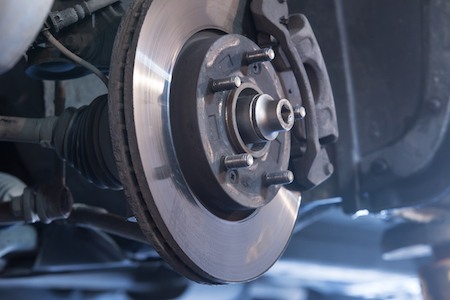 Let’s talk a bit about how anti-lock brakes work. If you think back to your lessons in drivers ed, you might remember how they taught you to take control over your car if you hit a patch of ice. If the brakes won’t work and you slide, pump the brakes instead by pressing down on the brake pedal and letting go, over and over again. This helps your tires look for traction instead of continuing to slide.
Let’s talk a bit about how anti-lock brakes work. If you think back to your lessons in drivers ed, you might remember how they taught you to take control over your car if you hit a patch of ice. If the brakes won’t work and you slide, pump the brakes instead by pressing down on the brake pedal and letting go, over and over again. This helps your tires look for traction instead of continuing to slide.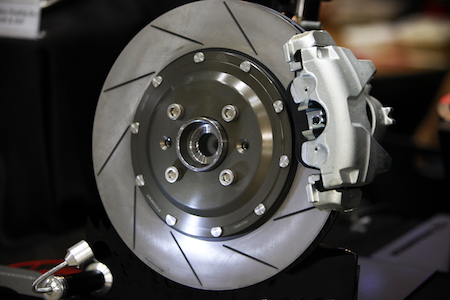
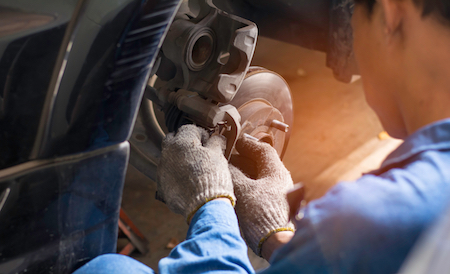
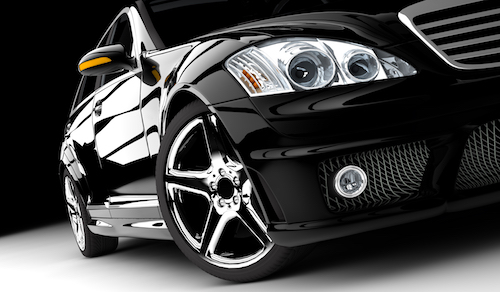
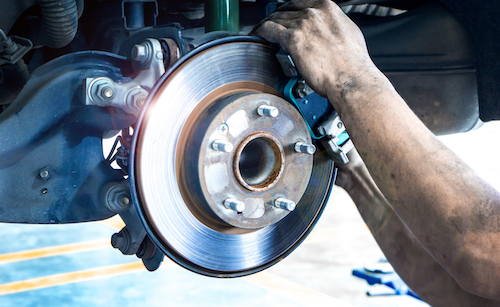
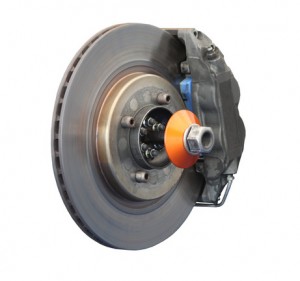 Disc brakes are called disc brakes because of the big metal disc or rotor that spins with the wheel. The brake pads rub against the rotor to slow the vehicle. In technical terms, the motion energy of the moving vehicle is transferred into heat energy by the brakes. The job of the rotor is to absorb that heat and dissipate it into the atmosphere. To do that effectively, the rotor needs a certain amount of mass ( measured by the thickness of the rotor) and a good surface to mate with the brake pads. Let’s talk about those two things.
Disc brakes are called disc brakes because of the big metal disc or rotor that spins with the wheel. The brake pads rub against the rotor to slow the vehicle. In technical terms, the motion energy of the moving vehicle is transferred into heat energy by the brakes. The job of the rotor is to absorb that heat and dissipate it into the atmosphere. To do that effectively, the rotor needs a certain amount of mass ( measured by the thickness of the rotor) and a good surface to mate with the brake pads. Let’s talk about those two things. Question: What are the signs that I need a brake job?
Question: What are the signs that I need a brake job?
